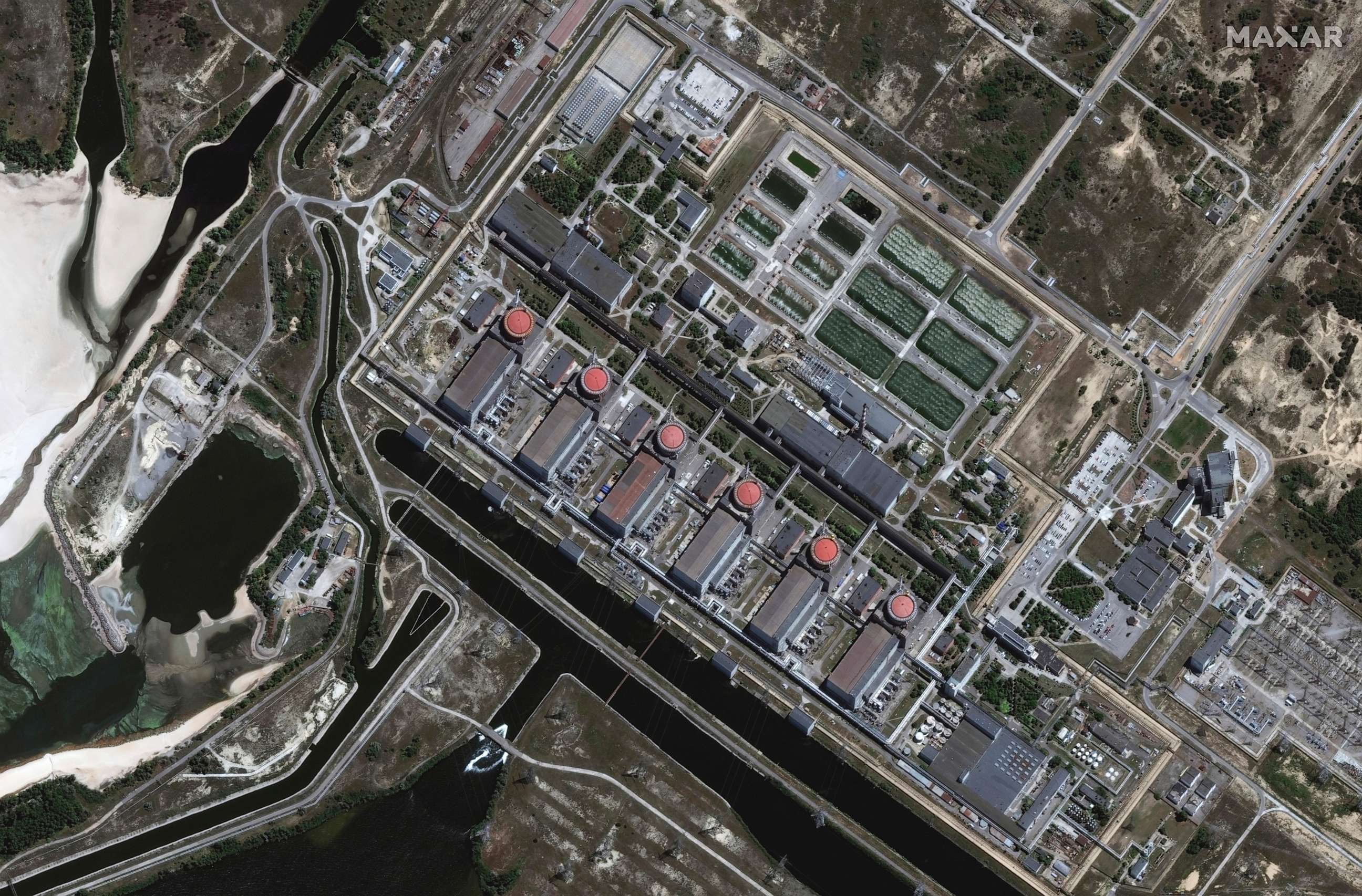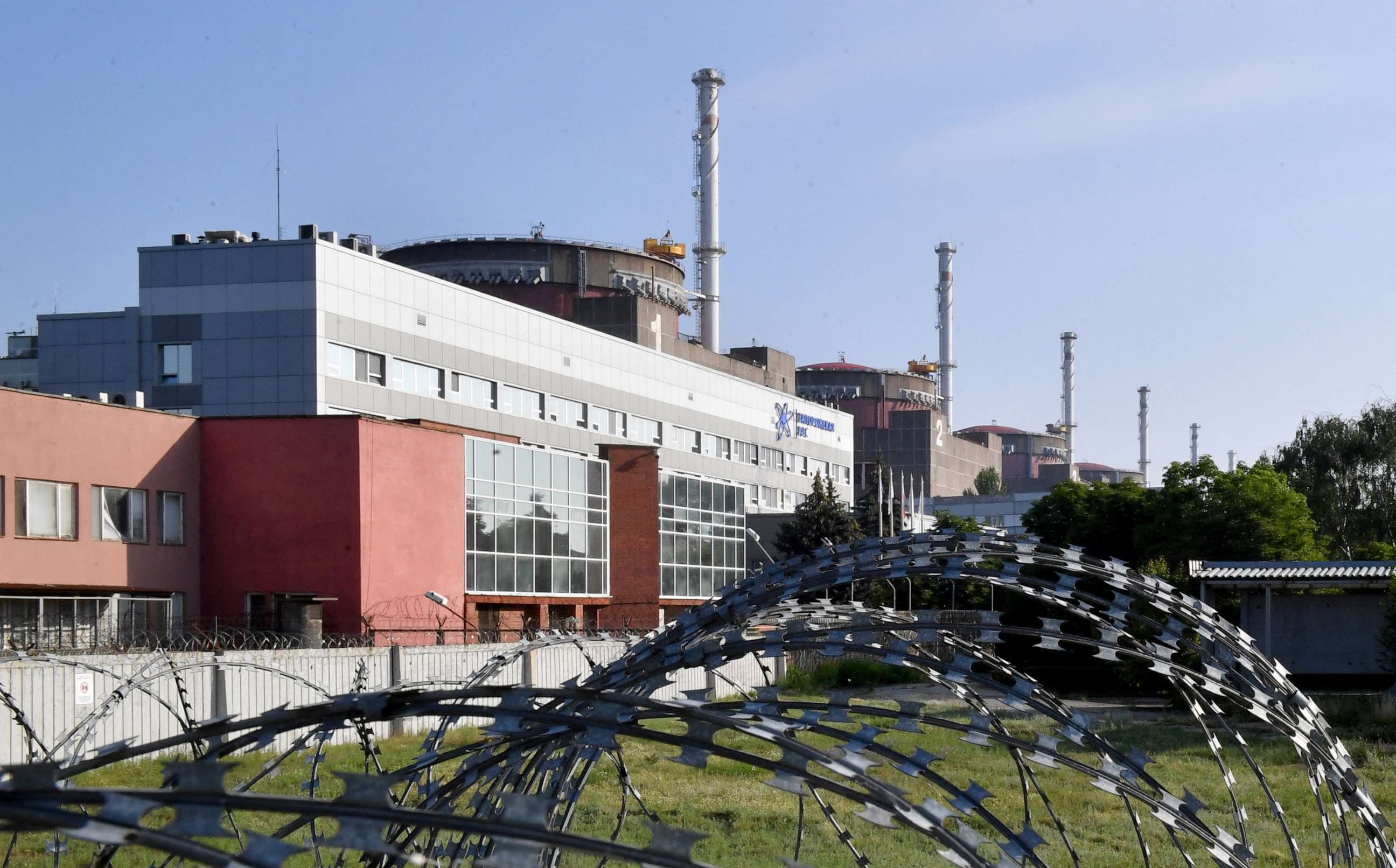What we know about the situation at Ukraine's Zaporizhzhia Nuclear Power Plant
Ukrainian officials claim Russia could blow up the nuclear power plant.
Ukrainian officials have heightened warnings in recent days that Russia plans to blow up the Zaporizhzhia Nuclear Power Plant -- the largest nuclear plant in Europe.
The plant has been at the center of concern since Russian invaded Ukraine on Feb. 24, 2022. Russian troops stormed the plant and took control on March 4, 2022, at one point kidnapping two top Ukrainian energy company officials.
The plant is located on the banks of the Dnipro River in the country's southeast. It continues to be run by Ukrainian staff and has suffered many outages and even shelling since the war began.

Warnings have became more dire after Russia allegedly blew up the Kakhovka dam and hydroelectric power plant on June 6, with officials claiming the same could be done at Zaporizhzhia. The nuclear plant also relies on water from the reservoir to provide power for its turbine condensers, according to the International Atomic Energy Agency.
Ukraine claims Russia has placed explosives at Zaporizhzhia
Ukrainian President Volodymyr Zelenskyy said in his nightly address on Telegram Tuesday that Ukrainian intelligence has information that Russian troops "have placed objects resembling explosives on the roof of several power units of the Zaporizhzhia Nuclear Power Plant."

Kremlin spokesman Dmitry Peskov has insisted it is the Ukrainians who are planning an attack at the plant.
Satellite imagery of the Zaporizhzhia Nuclear Power Plant from June 30 obtained by ABC News does not appear to show any objects on the roof of the plant.
In a statement on Wednesday, the IAEA said that while it has inspected sections of the power plant multiple times in recent weeks, it needs greater access to properly confirm the absence of mines or explosives at the site.

IAEA experts on site have conducted inspections, including regular walk downs across the site, but have not observed any visible indications of mines or explosives, Director General Rafael Mariano Grossi said.
Last month, Ukrainian officials warned that Russia plans to stage a "terrorist attack" at the plant. Ukraine's chief of military intelligence, Kyrylo Budanov, claimed Russia had now completed preparation to potentially sabotage the plant if it chooses. He claimed the plant's cooling pods have been rigged with explosives. If destroyed, that could lead to the reactor melting down.

"Whether the Kremlin decides to go ahead with this scenario today depends solely on the reaction of the global world," Mykhailo Podolyak, an adviser to Zelenskyy, said in a statement in late June. "The red lines have to be defined. The consequences must be announced. Not tomorrow. Today."
Disaster drills
Ukraine has been holding disaster drills in Zaporizhzhia, preparing residents in the surrounding area and showing them how to deal with a potential radioactive disaster.
ABC News was invited to the drills last week, about 30 miles from the plant, where firefighters in hazmat gear simulated decontaminating people from radiation during an evacuation.

Last year, Russian shelling even caused damage to the nuclear plant and cut power to the surrounding areas. The shelling came amid Russian attacks on Ukrainian power supplies.
The IAEA held talks with Russian and Ukrainian officials in November and December, with the goal of establishing a safe zone around the plant where there would be no fighting.
In October, Grossi said the perimeter of the power plant was mined, warning that a nuclear accident is a very clear possibility.
The American Nuclear Society has cautioned that even if bombed, the effects would be limited.
"Our experts have carefully considered 'worst case scenarios,' including bombardment and deliberate sabotage of the reactors and spent fuel storage canisters," the American Nuclear Society said in a statement. "They cannot foresee a situation that would result in radiation-related health consequences to the public."



